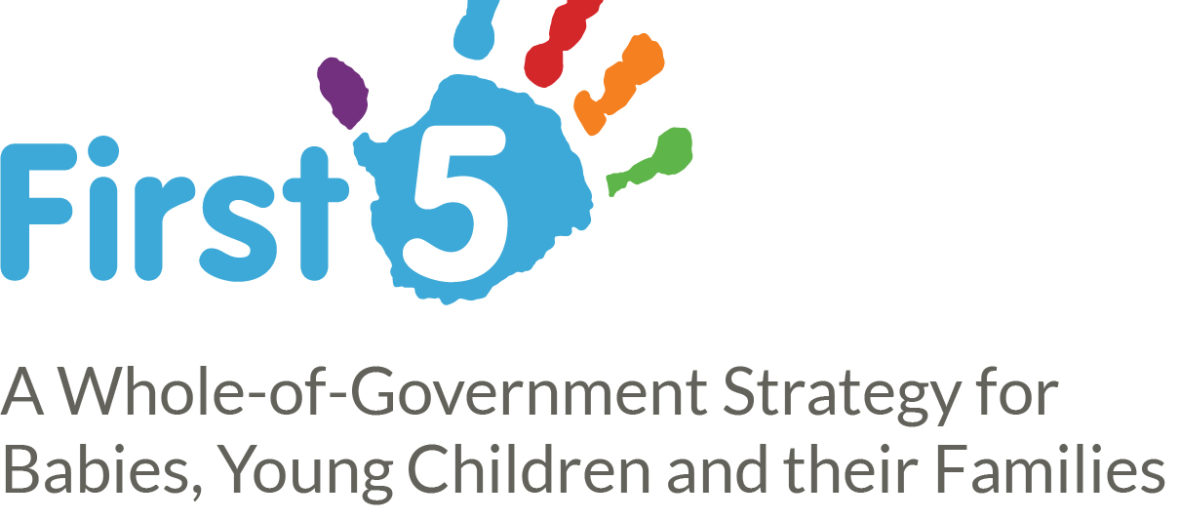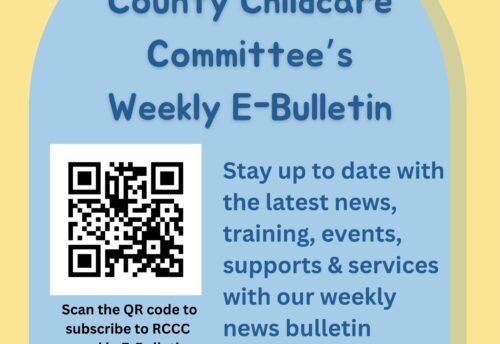
Minister publishes detailed implementation plan for First 5
Wednesday 22nd May 2019
The Minister for Children and Youth Affairs, Dr. Katherine Zappone, has today unveiled the Government’s initial implementation plan for ‘First 5’, Ireland’s first ever strategy for early childhood.
First 5 is a radical ten-year strategy that will deliver:
A broader range of options for parents to balance working and caring
A new model of parenting support
New developments in child health, including a dedicated child health workforce
Reform of the Early Learning and Care (ELC) system, including a new funding model
A package of measures to tackle early childhood poverty
The Implementation Plan describes the ambitious steps that will be taken in the initial implementation phase – from 2019 to 2021. Its development was led by an Inter-Departmental Group chaired by the Department of Children and Youth Affairs.
Speaking about today’s publication, Minister Zappone said:
“As Minister for Children and Youth Affairs, I am delighted to publish the First 5 Implementation Plan
This three-year plan describes the steps we will take in the short term to reform the architecture of early childhood services over the next decade, ensuring that children have the necessary supports in life to develop to their full potential.
This Plan sets us well on course towards fully realising the vision of First 5”.
First 5 includes more than 150 actions that will be progressed in the initial implementation phase. A summary of key actions and milestones includes:
i. Access to a broader range of options for parents to balance working and caring
The schedule of milestones to be achieved will ensure that by 2021, parents will have an individual entitlement to seven weeks of paid parental leave, to potentially allow children to benefit from an additional 14 weeks of parental care in their first year. There are also a range of milestones identified so that by 2021:
breastfeeding mothers in the workforce will be entitled to breastfeeding/lactation breaks for up to 104 weeks following the birth of their child.
parents of all children up to the age of 12 will be entitled to 26 weeks of unpaid parental leave.
employment legislation, culture and practice will better enable parents of young children to balance working and caring roles.
This work will be led by the Departments of Justice and Equality, and Employment Affairs and Social Protection and will be supported by the Departments of Business, Enterprise and Innovation, and Children and Youth Affairs.
ii. A new model of parenting support
The First 5 Implementation Plan sets out a programme of work so that by 2021, there will be:
high-quality, consistent parenting information resources available to meet parents’ requirements,
a public information campaign on positive parenting; and
a national model of parenting services – ranging from universal to targeted – including high-quality parenting programmes.
This work will be led by the new Parenting Unit, recently established by the Department of Children and Youth Affairs and will be supported by a number of other Government Departments.
iii. New developments in child health
Arising from milestones identified in the First 5 Implementation Plan, there will be considerable enhancements to child health supports over the next three years. These will build on and align with existing health policies, including the Healthy Ireland Policy Framework and the new National Oral Health Policy, Smile agus Sláinte.
In the initial implementation phase, under the leadership of the Department of Health, there will be:
new Healthy Eating Guidelines for 1–5 Year Olds,
new Nutrition Standards for Early Learning and Care settings for 1–5 Year Olds, including a toolkit for implementation,
a review of the content and scope of the Maternity and Infant Care Scheme,
new preventive oral healthcare packages introduced for children under 6 and,
enhancements to the National Healthy Childhood Programme, which covers child health reviews screening and vaccinations among others.
There will also be significant progress made in the development of a dedicated child health workforce, focussed initially in areas of high population density and disadvantage, with the foundational work needed for this transformative action completed in the initial implementation phase.
iv. Reform of the Early Learning and Care (ELC) System
A clear pathway to improve affordability, accessibility and quality of Early Learning and Care and School-Age Care is set out with a schedule of milestones to:
introduce the National Childcare Scheme,
move progressively towards a graduate-led professional Early Learning and Care workforce,
introduce regulations for paid childminders and school-age childcare, and
build on the National Childcare Scheme, undertake foundational work required to develop a new funding model for Early Learning and Care that will support improved quality without compromising affordability for parents or sustainability for providers.
This work will be led by the Departments of Children and Youth Affairs, and Education and Skills.
v. A package of measures to tackle early childhood poverty, including income, energy and food poverty
The First 5 Implementation Plan describes steps that will be taken to alleviate poverty in early childhood. This will include income poverty, energy poverty and food poverty measures. It will ensure that by 2021, there will be:
expanded access to free and subsidised Early Learning and Care allowing families to take up employment.
extensions to Warmth and Well-Being and Warmer Home Schemes.
piloting of the meals and milk programmes with early learning and care settings.
greater access to Community Cooking Programmes.
Preliminary work to develop and pilot a DEIS-type model for Early Learning and Care settings will be progressed.
This work will be led by a number of Government Departments, including Children and Youth Affairs, Health, Communications, Climate Action and the Environment, Agriculture, Food and the Marine, and Employment Affairs and Social Protection.
Commenting on the Implementation Plan, Minister Zappone reflected on the progress that has already made – with implementation of many actions already well underway.
“Considerable progress has already been made to deliver on the commitments in First 5 since it was published in November 2018.
Within my own Department, I have started to put in place some of the essential building blocks for successful implementation, including a Parenting Support Policy Unit, a First 5 Implementation Office and a First 5 Research and Evaluation Plan.
I recently published the membership and terms of reference for the Steering Group on the Workforce Development Plan for the Early Learning and Care and School-Age Childcare Sector and, in the next month, the membership and terms of reference for the Expert Group to reform the funding model will be announced.
Adding to this, intensive preparations for the launch of the landmark National Childcare Scheme later this year continue”.
The Minister welcomed the collaborative efforts and shared ambition to deliver on the vision of First 5 across Government Departments, State Agencies and the Community and Voluntary Sector.
“First 5 is a whole-of-Government, whole of-society strategy – everyone will play a part.
As we move to deliver this Implementation Plan, my Department will continue to provide leadership of this collective effort.
I look forward to continued collaboration with colleagues across Government Departments, State Agencies, Community and Voluntary Sector and wider partners in the pursuit of better outcomes for babies, young children and their families.”
The Implementation Plan will form the basis of an annual report, which will be developed by the First 5 Implementation Office, recently established by the Department of Children and Youth Affairs to oversee monitoring and reporting of First 5 implementation.
Click here to view original report from DCYA.



Leave a Reply